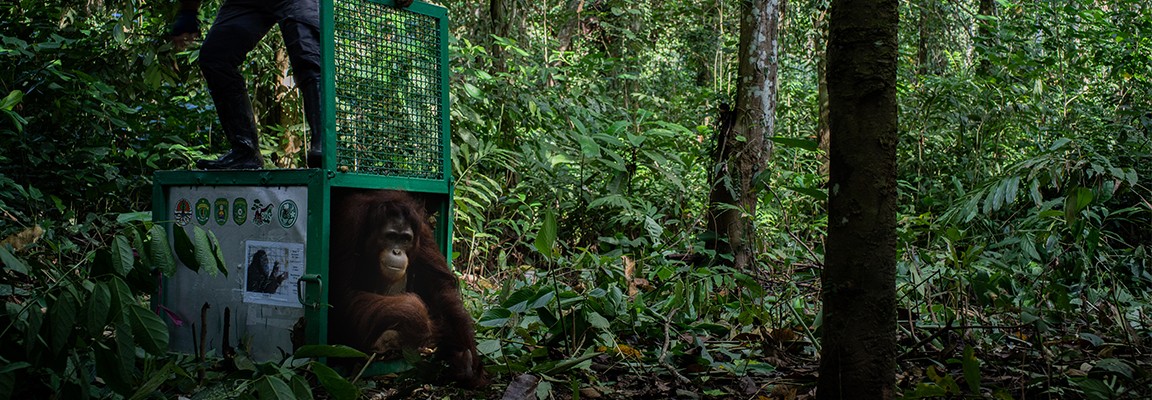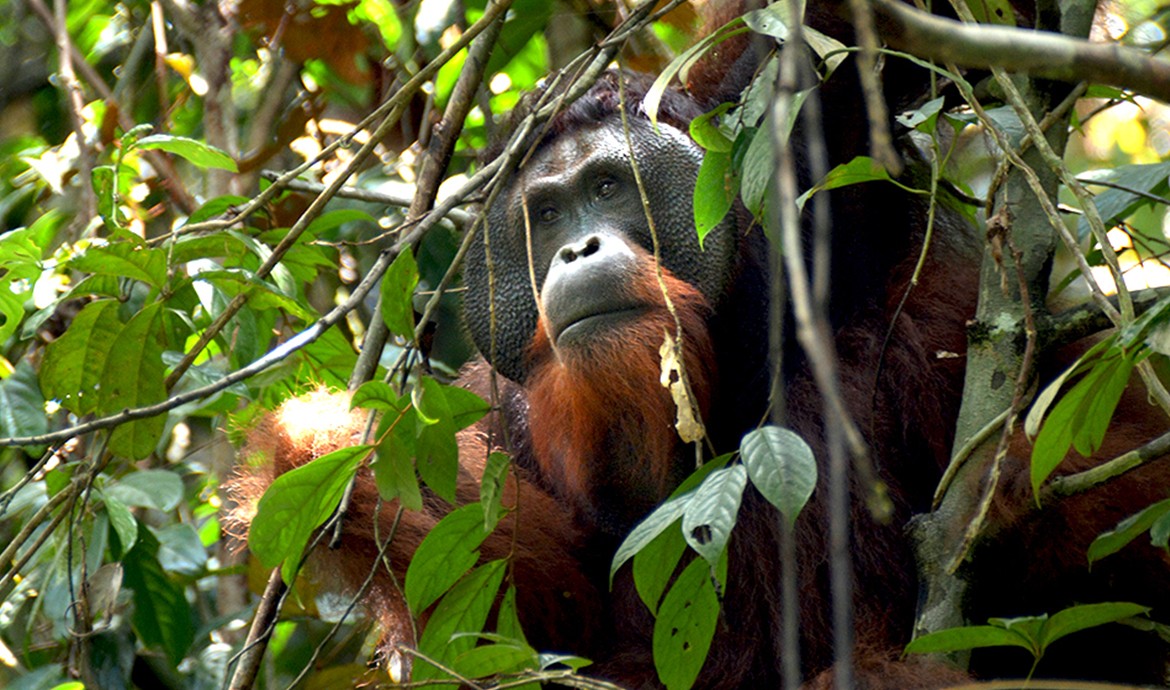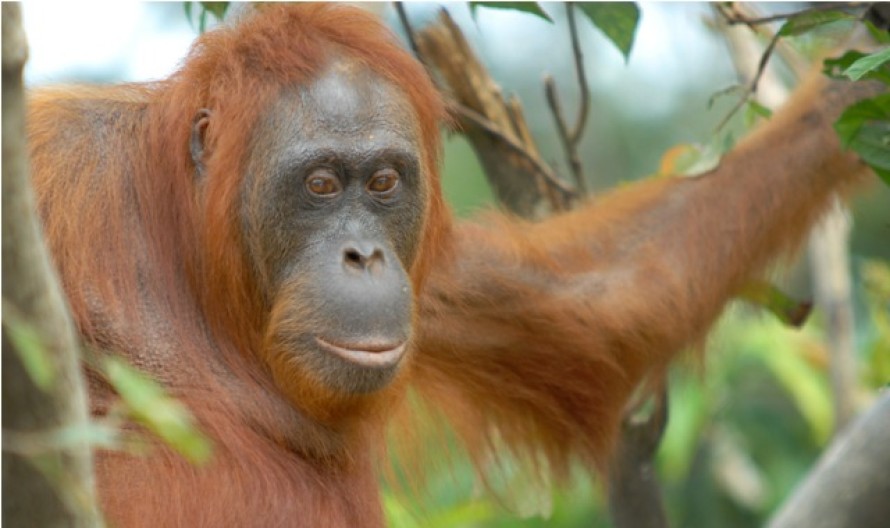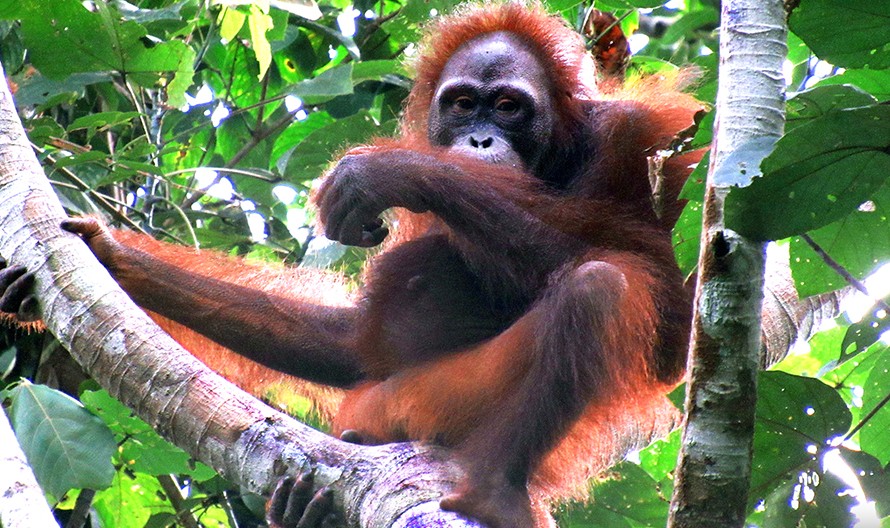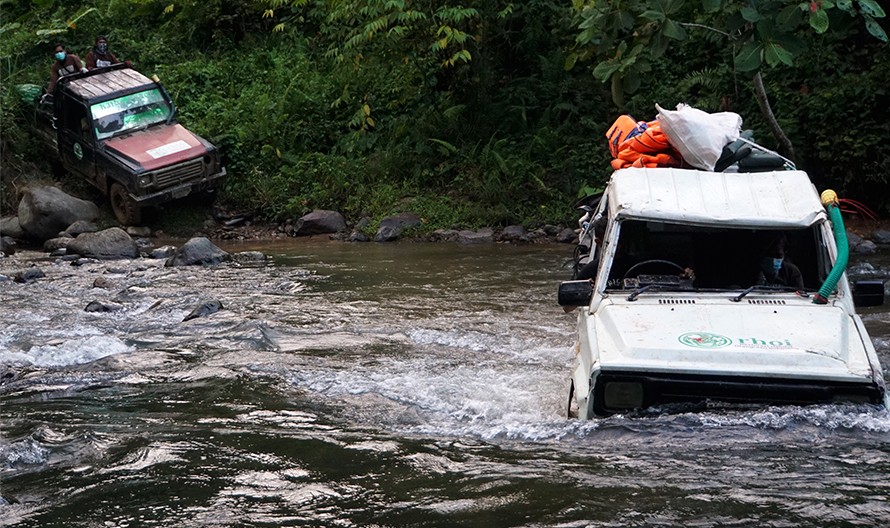Four Bornean orangutans (Pongo pygmaeus) will be released back to the wild in the Bukit Baka Bukit Raya National Park (known as Taman Nasional Bukit Baka Bukit Raya in Bahasa Indonesia, and hereafter referred to as TNBBBR) in Katingan Regency, Central Kalimantan, on Tuesday, 3 April. The planned release is part of the #OrangutanFreedom campaign, and was organised by the Borneo Orangutan Survival (BOS) Foundation, in collaboration with the Central Kalimantan Natural Resource Conservation Agency (BKSDA), the TNBBBR authority, and the United States Agency for International Development (USAID) through its USAID LESTARI program. This is the 9th orangutan release event in the TNBBBR, bringing the total number of orangutans released into the national park up to 79. This release is also supported by the Blue Bird Group and Save the Orangutan (STO).
The four release candidates include one 13-year-old male named Meong, and three females: Hayley (13), Nabima (18), and Tari (5). All four have completed a lengthy rehabilitation process at BOS Foundation’s Nyaru Menteng Orangutan Rescue and Rehabilitation Center, and possess the skills and behaviour required to live independently in the forest. They will be transported from Nyaru Menteng on a 10-12-hour trip across land and river to predetermined release points in the TNBBBR. After being released, the orangutans will be monitored daily for two full months, and then be observed for two hours per day over a year.
BOS Foundation’s CEO, JAMARTIN SIHITE, says that BOS Foundation is still receiving young orangutans on a regular basis, many of which are from the illegal pet trade. “Since January, four orangutans have been brought to our two rehabilitation centers, Samboja Lestari and Nyaru Menteng, where we currently care for almost 600 orangutans. While we appreciate the reports coming from community members, this trend indicates that many people are still not taking the legal consequences of keeping orangutans as pets seriously.
«The illegal wildlife trade, combined with ongoing and widespread illegal logging, even in those forests with protected status, means we have a huge task ahead of us. While cleared forests may never return to their natural states, reforestation can restore these areas to a point where they regain much of their original functionality, but it is a lengthy process. Environmental destruction and degradation has reached a deeply concerning level. We urgently need clear and firm law enforcement to change public perception on these issues. As we approach Earth Day, which is observed annually every April, we should collectively renew our effort to care for planet Earth; for humans and all the creatures that rely on Earth’s natural resources for their survival. Conservation must be collaborative effort. We are all at risk, we all stand to benefit, and we all bear the same responsibility to promote positive change.»
Head of the Central Kalimantan BKSDA, ADIB GUNAWAN, added that all parties must remember that hunting, catching, keeping, and trading orangutans or other protected wildlife is illegal and must be curbed. He emphasised the urgency for a reinvigorated orangutan conservation effort by saying: «Currently, there are hundreds of orangutans still in rehabilitation centres, waiting for a chance to return to the wild. We work in cooperation with BOS Foundation and other organisations concerned with orangutan and habitat conservation, to release as many orangutans as we can back to the forest. Today, we—the BOS Foundation, the TNBBBR authority, and USAID Lestari—will release four orangutans to the TNBBBR. This will take the total number of orangutans released in the area to 79.


